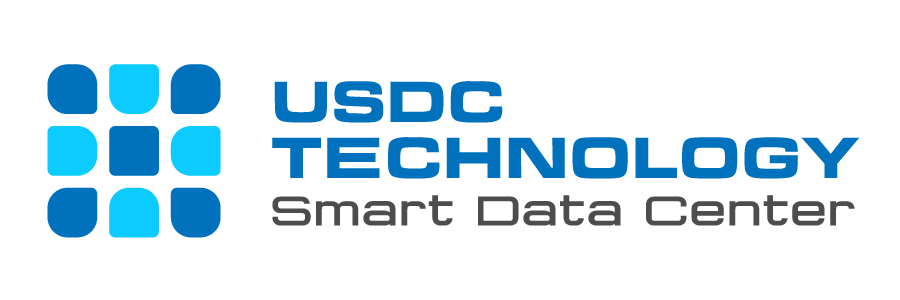In the digital transformation race, Vietnam is a relatively recent participant and is somewhat behind in the area of big data. However, the country possesses considerable growth potential, which makes the market prospects highly appealing. Vietnam’s data center market was valued at US$858 million in 2020 and is projected to reach US$1.82 billion in 2023, aligning with the nation’s ambitious goals for a comprehensive digital transformation as part of its “fourth industrial revolution.”
It is worth noting that the data market in Vietnam is predominantly controlled by foreign players, who hold an estimated 70-80% of the market share. The remaining 20% is divided among the leading domestic players such as Viettel, VNPT, FPT, and a few small and medium-sized enterprises.
Cloud computing and AI are two key sub-sectors in the market that exhibit a high degree of competition. In recent years, AI and Big Data have been widely employed in various industries such as banking and finance, e-commerce, and telecommunications.
Data market regulations and Initiatives in Vietnam
Vietnam’s government has recently issued Decision No. 127, which outlines the National Strategy for Research, Development, and Application of Artificial Intelligence until 2030. The strategy is a significant step forward, as it seeks to position AI as a critical field for development in Vietnam. The objective is for Vietnam to become one of the top four countries in ASEAN in AI applications by 2030.
The strategy outlines the following objectives:
– Develop a legal framework for AI
– Enhance data infrastructure to support AI research and development
– Foster an AI ecosystem
– Increase the number of domestic enterprises utilizing and developing AI to meet domestic demand
– Promote available AI software, solutions, and applications
– Foster cooperation with foreign AI firms
– Develop a highly skilled workforce in AI
Vietnam’s government is committed to prioritizing the application of AI across various industries and aims to position the country as a hub for AI research and development. This is encouraging for foreign AI companies seeking to enter this emerging market.
Decision No. 677 contains further policies aimed at promoting growth in the Information and Communication Technology (ICT) sector in Vietnam. The decision outlines a scheme for developing Vietnamese digital knowledge systems, which emphasizes the importance of knowledge and capacity sharing with foreign companies operating in the ICT sector. The primary objective of this scheme is to enhance the skills of human resources in ICT.
The government has prioritized the creation of incentives for hi-tech sectors, such as those outlined in Decision No. 2117. This decision specifies that the government will provide incentives for the following digital technologies upon market entry:
– Artificial Intelligence (AI)
– Internet of Things (IoT)
– Big Data Analytics
– Blockchain
– Cloud computing, Grid computing, Edge computing
– Quantum computing
– Next-generation network infrastructure (5G, 6G, NG-PON, SDN/NFV, SD-RAN, SD-WAN Network Slicing, LPWAN, IO-Link Wireless)
– Virtual reality, Augmented reality, Mixed reality
– Intelligent, Remediating and Adaptive cybersecurity
– Digital Twin
– Plant simulation
– Precision agriculture
Companies that operate in the digital technology sectors mentioned above are typically eligible for various incentives in Vietnam. These incentives include a 10% corporate income tax (CIT) rate over 15 years, land rent reductions or exemptions, a 5% value-added tax (VAT) rate, and tariff exemptions for parts, components, and materials used in production input for a period of five years.
Key players in Vietnam’s data market
Vietnam’s data market is highly fragmented with no dominant company, making it easier for foreign firms to enter and establish a share of the market. Hewlett Packard Enterprise (HPE) is currently the largest player in the server and storage system sub-sector, holding over 40 percent of the server market and 64 percent of the blade server market. Dell follows closely at 28 percent and 20.6 percent respectively. Cisco has a smaller presence, occupying around 2 percent of the market, and the remainder is made up of other firms such as Fujitsu and Hitachi. The market has seen growth due to enterprise demand for cloud service solutions.
In the market for management software, data integration, and data analysis software in Vietnam, the main players are FPT, VNPT, CMC TS, MISA, and HIPT. These companies hold comparable market shares in providing software solutions, telecommunications equipment, and data analysis.
Several major players compete in the data security market in Vietnam, including FPT, SAP Asia Vietnam, IBM Vietnam, Viettel Cyber Security Company, Microsoft, Amazon Web Services Vietnam, Cisco, and HPT Vietnam. These companies offer data encryption, user authentication, system monitoring, enterprise management, and other security measures to clients.
Current application of digital technologies in the banking sector
Technology plays a critical role in the intense competition among commercial banks in Vietnam. Almost all banks, accounting for 92 percent, are in the process of developing mobile banking applications, with half of them emphasizing automation and 16 percent focusing on Internet of Things (IoT) capabilities. In addition, the banking industry has been characterized by close partnerships with Fintech firms to provide payment services, digital banking services, big data analysis, and blockchain solutions. Commercial banks in Vietnam have embraced advanced analytics, artificial intelligence (AI), machine learning (ML), and chatbots to create value. Notable digital banking platforms that have been successfully launched include Timo/Yolo by VP Bank, Robot OPBA by Nam A Bank, and Live Bank by TpBank.
Although Vietnamese commercial banks are rapidly adopting digital technologies, there is still a gap in the level of digitalization between them and large global banks. This suggests that there are opportunities for Fintech and ICT solutions providers to enter the Vietnamese banking market and offer innovative solutions to help Vietnamese banks catch up with their global counterparts.
Key takeaway
Vietnam’s data market is a relatively young yet highly dynamic market that has attracted the attention of major global ICT firms. As the market transitions and competition intensifies, both domestic and foreign players are vying for a larger share. With supportive government initiatives and increasing demand across various industries in Vietnam, there are significant business opportunities for ICT companies looking to enter this market.
Media Contact:
Universal Smart Data Center Technology
Phone: (+84) 28 73080708
Email: info@new.demo.usdc.vn


